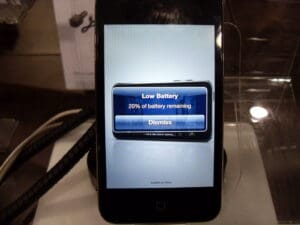While some people seem to lie effortlessly, psychological research suggests that it is often more complex and effortful than it appears. Are you adept at the science of lying? Learn the necessary traits and mindset one must possess to lie convincingly.

Can You Really Tell if Someone Is Lying?
A polygraph test, referred to in layman’s terms as a “lie detector test” is the most well-known method of attempting to determine if someone is being truthful. In addition to being used on individuals suspected of crimes, polygraph tests are used by some companies to screen new employees.
However, scientific and government assessments suggest polygraphs are highly inaccurate, and some consider it to be a pseudoscience.
Despite wide use by US law enforcement and federal government agents, the Supreme Court determined that no defendant or witness can be forced to undergo the test unless under supervision by the courts. Further, the Supreme Court has left it to individual jurisdictions to decide whether polygraph results can be admitted as evidence in court cases.
Thus, science has answered the need for a more accurate and reliable way of detecting deception.
New Discoveries in the Science of Lying
Science has explored numerous avenues to search for ways to detect dishonesty. In addition to searching for deception indicators, cognitive and social psychologists are also exploring why some people are truthful and others aren’t.
What Characteristics Do Effective Liars Possess?
Social and cognitive psychologists have identified certain characteristics that effective liars tend to possess.
1. High Reward-Sensitivity
Researchers stumbled onto this by noting increased activity in the part of the brain associated with reward processing – the nucleus accumbens.
People who are reward-sensitive are typically more motivated to seek out hedonistic pleasure, social status, and wealth. Lying is easy when they stand to gain from being dishonest.
2. Possess a Good Working Memory
Researchers say a good working memory is a prerequisite to telling convincing lies. People who possess a greater working memory typically can multitask better than those who don’t. Liars must be able to not only generate a plausible story, but they must also block out the true version of events – which is a type of multitasking.
Lying involves the initial fabrication of events and suppression of truth, but that lie must also be reinforced. And the lie must coincide with other truths to remain consistent with the peripheral details of an event. In other words, lying requires an editing of events to allow some truths, while rewriting and maintaining deception on other details.
3. Ability to Manage Nonverbal Behavior
Effective liars are able to control nonverbal behavior such as stuttering, hesitating, fidgeting, avoiding eye contact, and other signs considered to be indicators of dishonesty.
Polygraph tests consider the physiological arousal of an individual, measuring the response of heart rate and skin conductivity as an individual response to various questions. However, a good liar has the ability to remain relaxed and confident. There are many people who can “beat” a polygraph through the science of lying.
4. Mental Strength
Researchers say that the activity of lying is mentally taxing. Because it takes so much effort, it’s one of the reasons many people choose honesty as the easier option.
Liars must overcome the tendency of the human mind to limit and avoid expending mental energy. Therefore, a liar must have strong self-motivation to force the mind to do the work of lying, which takes significant cognitive effort.
So How Do You Tell a Convincing Lie?
You want to be a better liar, eh? Well, shame on you. (We kid, we kid). Here are some great tips. We just hope you’ll only use this new superpower for good.
1. Remain Cool and Composed
When you lie, your heart rate, blood pressure, and body temperature tend to change, so try to remain cool and composed. Most importantly, try not to sweat!
2. Breath Normally
Inhaling sharply is a clue that you are lying. Therefore, controlling your breathing and keeping it “normal” is important to telling a convincing lie.
3. Don’t Fidget or Touch Yourself
Your brain may want to trigger some typical neuromuscular responses like touching your face, arms, or other parts of your body when you lie. It’s called pacifying behavior. Trained interviewers will notice if this suddenly begins.
4. Don’t Lean Back
Many subconsciously try to create distance between themselves and the person they are lying to. So rather than leaning back, try leaning in when you tell your lie.
5. Don’t Proclaim Your Honesty
Saying “I’m not lying” is a pretty surefire way to sound like you’re lying. Resist the urge.









